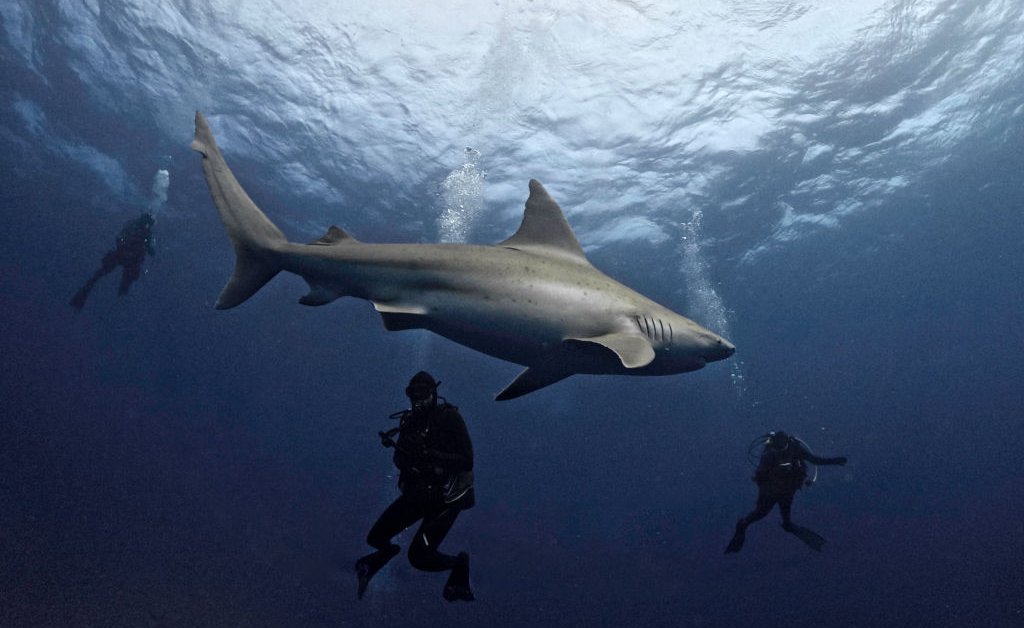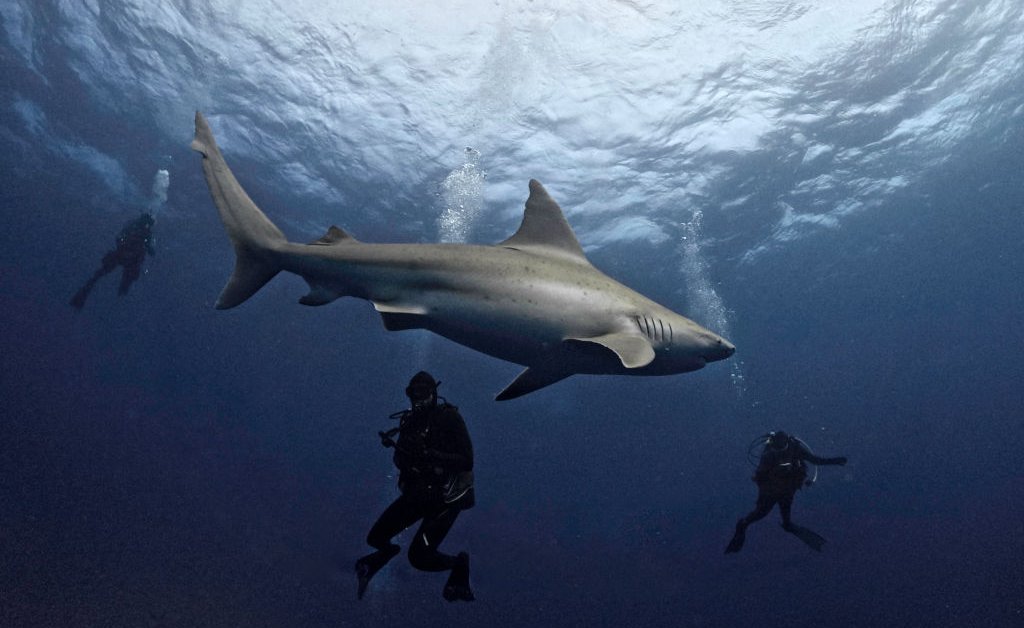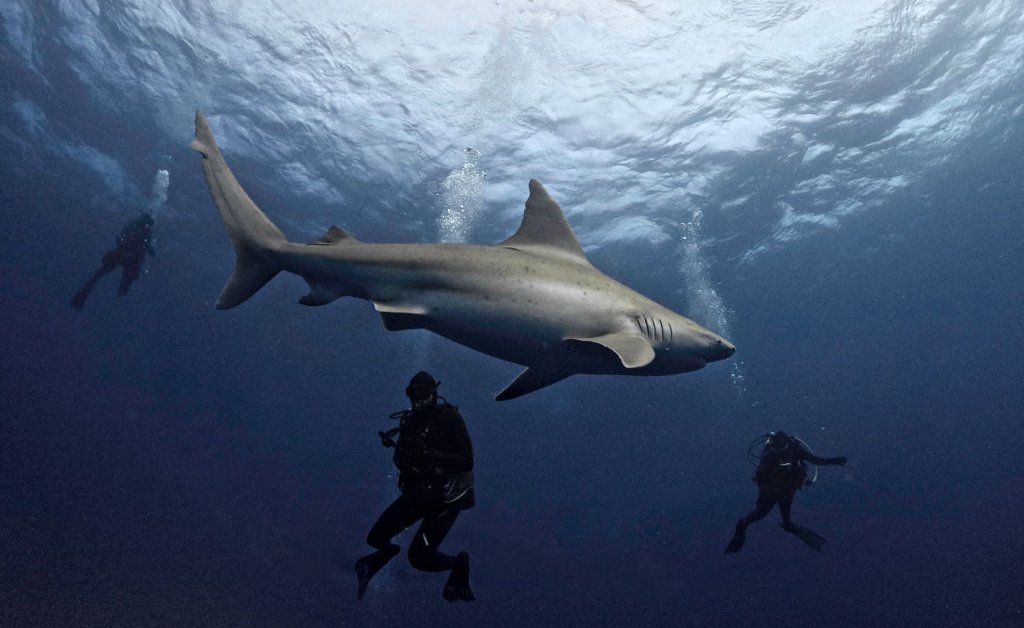Did Jaws Harm Or Help Marine Conservation? A Critical Look

Welcome to your ultimate source for breaking news, trending updates, and in-depth stories from around the world. Whether it's politics, technology, entertainment, sports, or lifestyle, we bring you real-time updates that keep you informed and ahead of the curve.
Our team works tirelessly to ensure you never miss a moment. From the latest developments in global events to the most talked-about topics on social media, our news platform is designed to deliver accurate and timely information, all in one place.
Stay in the know and join thousands of readers who trust us for reliable, up-to-date content. Explore our expertly curated articles and dive deeper into the stories that matter to you. Visit Best Website now and be part of the conversation. Don't miss out on the headlines that shape our world!
Table of Contents
Did Jaws Harm or Help Marine Conservation? A Critical Look
The 1975 blockbuster Jaws terrified audiences worldwide with its depiction of a man-eating great white shark. But beyond the cinematic thrills, the film sparked a heated debate: did Jaws ultimately harm or help marine conservation efforts, particularly for great white sharks? The answer, as we'll explore, is surprisingly complex.
The Immediate Aftermath: A Fear-Driven Decline in Shark Populations
The immediate impact of Jaws was undeniably negative for shark populations. The film fueled a widespread fear of sharks, leading to a dramatic increase in shark culling. Many coastal communities, already wary of these apex predators, intensified their efforts to kill sharks, believing it necessary for public safety. This fear-based reaction, amplified by sensationalist media coverage, had a devastating impact, particularly on great white shark populations, already vulnerable due to overfishing and habitat loss. This period saw a significant decline in great white shark numbers, highlighting the dangers of misinformation and fear-mongering when it comes to wildlife conservation.
The Unexpected Silver Lining: Increased Awareness and Funding
However, the story doesn't end there. The immense popularity of Jaws paradoxically led to a surge in public interest in marine life, including sharks. The film inadvertently brought these magnificent creatures into the global spotlight, generating conversations about their crucial role in the marine ecosystem. This increased awareness, while initially negative, eventually paved the way for greater investment in marine research and conservation initiatives.
A Shift in Public Perception: From Fear to Fascination
Over the decades following Jaws, public perception of sharks has gradually shifted. Documentaries like the BBC's Planet Earth and National Geographic's numerous shark specials have helped to humanize these creatures, showcasing their beauty, intelligence, and ecological importance. This shift in perspective has been crucial in fostering a more nuanced understanding of sharks, moving away from the fear-driven narrative perpetuated by Jaws towards a more informed appreciation for their role in maintaining healthy ocean ecosystems.
The Long-Term Impact: Conservation Gains and Ongoing Challenges
Today, great white sharks remain vulnerable, listed as Vulnerable on the IUCN Red List. However, the increased awareness generated (in part) by Jaws has contributed to significant conservation gains. There's been a substantial increase in research funding dedicated to understanding shark behavior, migration patterns, and conservation needs. Marine Protected Areas (MPAs) have been established to protect critical shark habitats, offering refuge from fishing pressures. Furthermore, stricter regulations on shark fishing have been implemented in many parts of the world, although enforcement remains a significant challenge.
Conclusion: A Complex Legacy
Did Jaws harm or help marine conservation? The answer is both. While the film initially triggered a devastating culling of sharks, it also inadvertently sparked a wave of public interest that, over time, has contributed to increased awareness, research, and conservation efforts. The legacy of Jaws serves as a powerful reminder of the complex relationship between popular culture, public perception, and the urgent need for effective wildlife conservation strategies. The fight to protect great white sharks and other vulnerable marine species continues, and it's crucial to remember the lessons learned from the past to ensure a sustainable future for our oceans. Learn more about great white shark conservation by visiting the .

Thank you for visiting our website, your trusted source for the latest updates and in-depth coverage on Did Jaws Harm Or Help Marine Conservation? A Critical Look. We're committed to keeping you informed with timely and accurate information to meet your curiosity and needs.
If you have any questions, suggestions, or feedback, we'd love to hear from you. Your insights are valuable to us and help us improve to serve you better. Feel free to reach out through our contact page.
Don't forget to bookmark our website and check back regularly for the latest headlines and trending topics. See you next time, and thank you for being part of our growing community!
Featured Posts
-
 From Hollywood To The Ocean Jaws And The Shifting Tides Of Shark Conservation
Jun 19, 2025
From Hollywood To The Ocean Jaws And The Shifting Tides Of Shark Conservation
Jun 19, 2025 -
 Collins Powers Up Homer And Double Highlight Two Hit Performance
Jun 19, 2025
Collins Powers Up Homer And Double Highlight Two Hit Performance
Jun 19, 2025 -
 Theatrical Triumphs 8 Show Stopping Moments In Theatre History
Jun 19, 2025
Theatrical Triumphs 8 Show Stopping Moments In Theatre History
Jun 19, 2025 -
 Did Jaws Hurt Or Help Marine Conservation A Critical Look
Jun 19, 2025
Did Jaws Hurt Or Help Marine Conservation A Critical Look
Jun 19, 2025 -
 101 Mph Reckless Driving Charge For Ex Purdue Big Man
Jun 19, 2025
101 Mph Reckless Driving Charge For Ex Purdue Big Man
Jun 19, 2025
